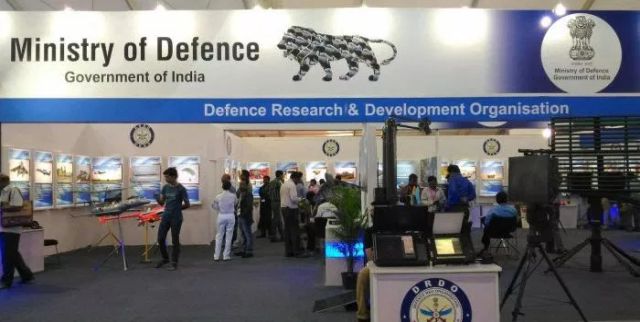
by admin | May 25, 2021 | Corporate Jobs, Employment, Private Jobs
 Bengaluru : Driven by demand for a skilled workforce in emerging technologies such as cyber security, Internet of things (IoT) and Big Data, India will generate over 14 lakh new IT jobs by 2027, a Cisco-led study said on Thursday.
Bengaluru : Driven by demand for a skilled workforce in emerging technologies such as cyber security, Internet of things (IoT) and Big Data, India will generate over 14 lakh new IT jobs by 2027, a Cisco-led study said on Thursday.
This represents a whopping 46 per cent growth in jobs primarily driven by essential digital transformation skills that organisations are seeking today, said the global networking giant Cisco who commissioned International Data Corporation (IDC) to conduct this study.
According to the findings, jobs like social media administrator, Machine Learning (ML) designer and IoT designer are among the most in-demand job roles in the country in the coming years.
“Nearly 89 per cent of hiring managers reported a higher level of trust on candidates having certifications, while 88 per cent of customers experienced an improvement in the level of service and support to end users,” showed the study.
“Witnessing the growing importance in a rapidly changing technological landscape, nearly a fifth of employees self-funded their certification courses while about 50 per cent of them underwent some training in 2017,” it added.
According to the study, as skill sets required in this digital age change for most industries, it’s also transforming how and where people work.
As a result, IT organisations might find it difficult to fill these niche roles which calls for upskilling the employee skill sets through certification programmes.
“Cisco, being a leader in certification courses, offers some of the most sought-after IT courses which were one of the pre-requisites for the 5.9 million new job postings in 2017,” according to the IDC “InfoBrief” study.
A Nasscom report in July highlighted the fact that nearly 1.4 lakh jobs are vacant in the Artificial Intelligence (AI) and Big Data Analytics segment across various sectors in the country, out of the total demand of 5.1 lakh employees.
Of the total demand, 3.7 lakh jobs are filled, it said. By 2021, the employee deficit would increase to 2.3 lakh, as the total demand goes up to around 8 lakh employees, as per the report.
—IANS

by admin | May 25, 2021 | Branding, Entrepreneurship, Markets, Social Media, Startup Basics, Technology
 Hyderabad : Nine shortlisted augmented reality (AR) and virtual reality (VR) start-ups under the India Innovation Hub Accelerator Programme of T-Hub and Facebook on Wednesday showcased their technologies.
Hyderabad : Nine shortlisted augmented reality (AR) and virtual reality (VR) start-ups under the India Innovation Hub Accelerator Programme of T-Hub and Facebook on Wednesday showcased their technologies.
The three-month accelerator programme concluded with the Demo Day. The programme provided them an opportunity to work and scale up under the aegis of Facebook, with direct access to FbStart, a global program from Facebook for start-ups.
These start-ups received hands-on training, mentoring sessions and practical lessons on product, technology and strategy from Facebook experts, skilled in the field of AR/VR. In addition, each start-up will become a part of an alumni network of graduates from programme across the globe, enabling them to learn, collaborate and build together, said a statement by T-Hub and Facebook.
The programme also provided them with access to T-Hub’s network of mentors, industry experts, investors, service providers and the community.
T-Hub and Facebook selected a cohort of nine start-ups from 20 shortlisted applications for the three-month programme, after a rigorous evaluation process. These start-ups offered solutions with the potential to solve real-world problems in industries such as health tech, industrial manufacturing, human resources, education and corporate learning, among others.
“Today, technology has the potential to unlock newer opportunities, empowering people and businesses to dream big and build products to empower their communities. The success of our accelerator programme reinforces our focus to enable the next generation of start-up success in India,” said Satyajeet Singh, Head of Platform Partnerships, Facebook India and South Asia.
“For this programme, T-Hub specifically focused on AR, VR and MR, but in general, start-ups offer a tremendous value proposition for corporate giants with solutions based on many emerging technologies like AI, IoT, Blockchain, etc. T-Hub is elated to continue being one of the best scaling catalysts in India for both corporates and start-ups,” said Srinivas Kollipara, COO and interim CEO, T-Hub.
—IANS

by admin | May 25, 2021 | Corporate, Corporate Governance, Entrepreneurship, News, Politics, Startup Basics
 Bengaluru : Defence Minister Nirmala Sitharaman on Saturday called upon startups to develop technologies and weapons for the Indian armed forces.
Bengaluru : Defence Minister Nirmala Sitharaman on Saturday called upon startups to develop technologies and weapons for the Indian armed forces.
“We (Ministry of Defence) want you to provide Indian solutions to problems faced by the armed forces. By indigenisation, India doesn’t need to import many of the products that we do,” Sitharaman told startups in this tech hub.
“India wants its sectors disrupted through technological advancements,” she said at the launch of “Defence India Startup Challenge”, a national contest for startups to develop arms and technologies for the defence sector.
“Indigenisation has been a priority for India, however, we did not indigenise sufficiently enough,” the Minister added, addressing a gathering of 200 startups, incubators and defence officials at the Hindustan Aeronautics Limited (HAL) Convention Centre in the city centre.
Through the contest, startups, small and medium-sized enterprises (SMEs) and individual researchers and academic institutions can take part in 11 different categories of creating technologies and products that can be used by the armed forces.
The 11 categories in which the startups and researchers can develop products or solutions include building see-through armour for the army, development of 4G-based tactical Local Area Network for the Navy, and laser weaponry and unmanned surface and underwater vehicles development for the Air Force, among others.
Select few startups will also receive a funding of up to Rs 1.5 crore through the Ministry for developing their ideas, and given access to test their products.
As part of the event, a Bengaluru-based firm Tonbo Imaging has been given an order to make night fire control system for Russian-made grenade launcher AGS-30.
“The Ministry will ensure the startups working on their ideas get the orders,” Sitharaman said.
Noting that unmanned drones with missiles are the envy of many countries, the Minister added it is not beyond India’s capacity to develop them.
The Defence Ministry, on the occasion, also tied up with five business incubators to promote and support the startups, including Centre for Innovation Incubation and Entrepreneurship with Indian Institute of Management (IIM), Ahmedabad; Society for Innovation and Entrepreneurship with the Indian Institute of Technology (IIT) Bombay; T-hub startup incubator in Hyderabad; ‘Forge’ incubator in Coimbatore; and IIT Madras.
“The contest is in line with the Innovations for Defence Excellence (IDEX) scheme announced by Prime Minister Narendra Modi earlier in April during Defence Expo in Chennai, to promote innovation and entrepreneurship in defence sector,” an official statement said.
The competition will also give a fillip to the country’s innovation potential and create networks for collaboration between defence sector and startups, it added.
Over 200 startups, 50 SMEs and 12 business incubators took part in the defence-business gathering.
—IANS

by admin | May 25, 2021 | Business, Corporate, Corporate Buzz, Economy, Large Enterprise, Markets, News, Technology
 New Delhi : Microsoft’s Artificial Intelligence (AI) and Machine Learning (ML) technologies are helping Apollo Hospitals predict and suggest preventive steps for cardian diseases with utmost accuracy, a top hospital executive said here on Wednesday.
New Delhi : Microsoft’s Artificial Intelligence (AI) and Machine Learning (ML) technologies are helping Apollo Hospitals predict and suggest preventive steps for cardian diseases with utmost accuracy, a top hospital executive said here on Wednesday.
Microsoft last month partnered with Apollo Hospitals to expand its healthcare AI offering.
“Apollo Hospitals recognised the potential of technologies like AI, ML and data analytics in providing high-quality preventive healthcare services very early,” Sangita Reddy, Joint Managing Director, Apollo Hospitals Enterprise Ltd, told reporters here.
“Our partnership with Microsoft bring us to the forefront of this remarkable metamorphosis that is allowing us to meet healthcare demand and maintain service excellence regardless of geography,” Reddy added.
The AI Network for Healthcare, previously known as Microsoft Intelligent Network for Eyecare (MINE), is a part of Microsoft “Healthcare NexT” initiative aimed at accelerating healthcare innovation through AI and Cloud computing.
Nearly three million heart attacks happen in India every year and 30 million Indians suffer from coronary diseases.
Apollo Hospitals, with Microsoft’s AI Network for Healthcare, now has the capability of applying ML and AI to cardio-vascular health records to develop an Indian-specific heart risk score.
With the new heart risk score for India, Apollo Hospitals’ AI model helps gauge a patient’s risk for heart disease and provides rich insights to doctors on treatment plans and early diagnosis.
“The beauty of these solutions is that all the depersonalized personal health data that Apollo Hospitals is crunching comes from the Indian population,” Microsoft said in a blog post on Wednesday.
This means the model is two times more accurate than models with ‘borrowed’ data from other countries with different lifestyles, socio-economic, genetic and environmental factors.
Now, when a patient goes for a cardio health check, the doctor can build up a more accurate cardio-vascular health profile of the patient based on machine learning of all their previous patient data.
AI can then, in turn, predict future coronary ailments the patient might experience in the next 10 to 20 years based on these multiple factors.
“Secondly, the doctor can make a patient health plan that addresses these possibilities whether it be prescribing medicine or recommending specific lifestyle changes,” the post said.
“Why does an individual with an X genetic biological presentation have disease X but not Y? Why does someone with the same lifestyle not have the same problem? Computing capacity is enabling us to take this data and generate clinical insights,” explained Reddy.
With the power of the Cloud, doctors can share high resolution 3D imagery and consult partner doctors locally and abroad in real time, improving surgery pre-planning and success.
—IANS

by admin | May 25, 2021 | Markets, Online Marketing, Technology
 New Delhi : Microsoft and online marketplace Paisabazaar.com on Saturday announced that they have entered into a partnership to develop “industry first” innovations on the tech giant’s Cloud platform using artificial intelligence (AI) and machine learning.
New Delhi : Microsoft and online marketplace Paisabazaar.com on Saturday announced that they have entered into a partnership to develop “industry first” innovations on the tech giant’s Cloud platform using artificial intelligence (AI) and machine learning.
As part of the overall partnership, Paisabazaar.com will move its entire infrastructure to Microsoft Azure Cloud, the companies said in a statement.
“This partnership will enable Paisabaazar to utilise the power of Microsoft’s cutting edge AI services to develop novel solutions and deliver greater value to their rapidly growing customer base,” said Meetul Patel, Chief Operating Officer, Microsoft India.
By building the technology on Microsoft Cloud, Paisabazaar.com would offer customised, tailor-made and secure solutions for each consumer coming to its platform.
“With this partnership, we would delight our consumers through a never-seen-before digital experience and help them save both time and money through more customised solutions,” Naveen Kukreja, CEO and Co-founder, Paisabazaar.com, added.
The collaboration would help Paisabazaar.com identify customer needs more accurately, factoring in their lifestyle and life-stage.
It would help sharpen product recommendations and underwriting decisions. This would also expedite the processes on the Paisabazaar platform through further automation and digitisation.
The companies would also build chat-bots, image recognition innovations, voice analytics and language processing features to enhance the customer experience.
—IANS

 Bengaluru : Driven by demand for a skilled workforce in emerging technologies such as cyber security, Internet of things (IoT) and Big Data, India will generate over 14 lakh new IT jobs by 2027, a Cisco-led study said on Thursday.
Bengaluru : Driven by demand for a skilled workforce in emerging technologies such as cyber security, Internet of things (IoT) and Big Data, India will generate over 14 lakh new IT jobs by 2027, a Cisco-led study said on Thursday.



